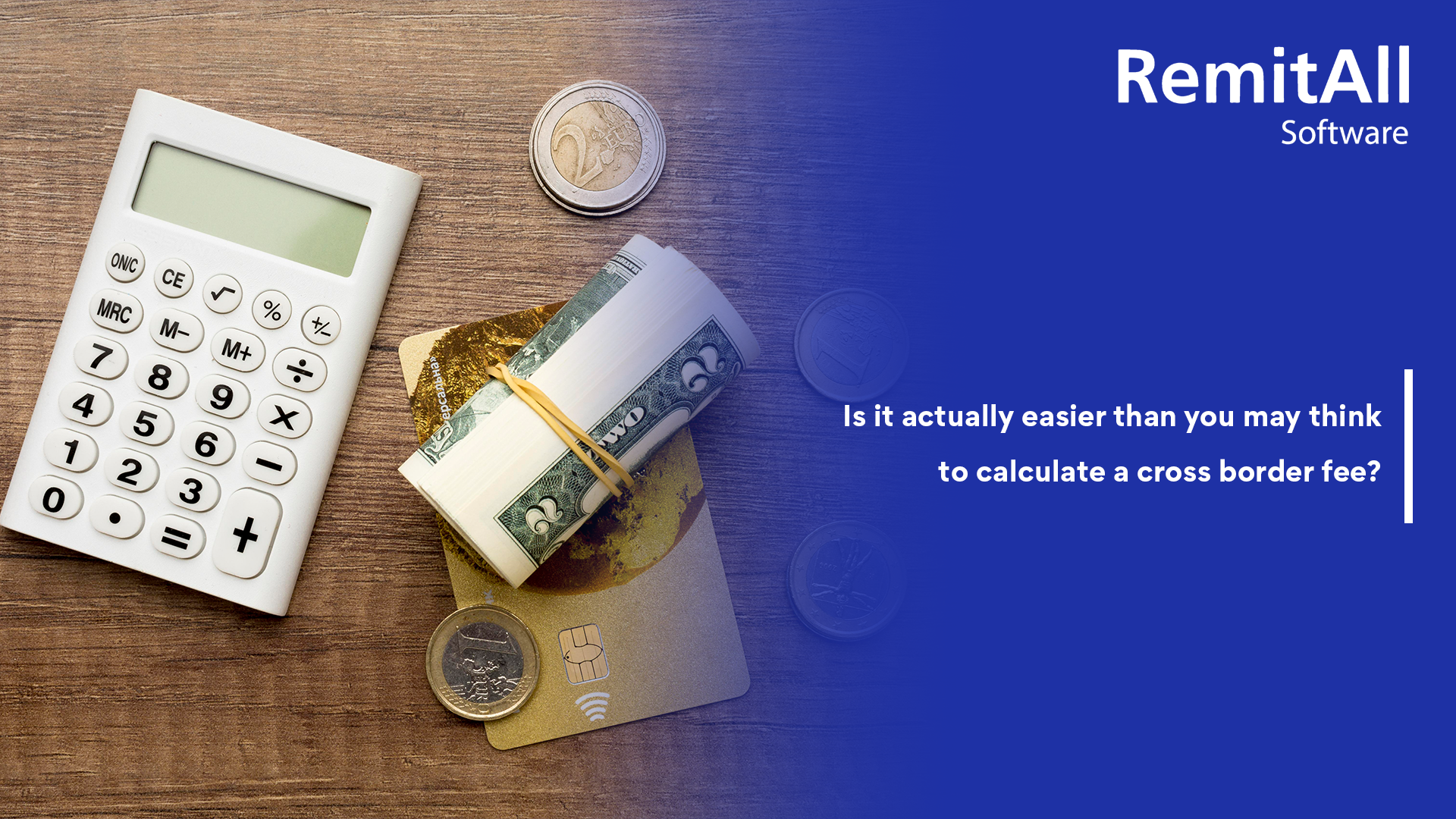FEB 05 - 2:30 Minutes
What is a cross-border fee?

A cross-border fee is an assessment fee merchants pay when customers use cards from international banks at their business.
The cardmember associations first introduced the cross-border fee in 2005. eCommerce had finally fixed itself into the worldwide economy. ON the other hand, assessment fees were soaring across the board.
Mastercard and Visa were tired with paying fees for merchants selling abroad and decided to pass that cost along to them.
These cross-border fees are charged during international transactions, and the issuing banks pass them along to the merchants or the business owners).
How Do Cross-Border Money Transfers function?
Every country's currencies and banking systems operate on independent terms. This particularly makes transferring money globally a complex mechanism. There is a network of banks that hold relationships around the world. They takes acre of the deposits on behalf of other banks so that when an individual or company initiates a money transfer, they debit the funds in the local currency. Then the money is credited in the foreign currency.
In few cases, payment service providers sit in the middle of this process. They pass the money from the sender to the issuing bank and then the acquiring bank to the recipient. Several stages are involved in the process. It maximum takes 2-5 business days for a bank transfer to clear. Whereas cash transfers can take upto a day for maximum. Although electronic wallets move funds promptly.
What are Cross-Border Transfer Fees?
Fees on cross-border money transfers can be moderately high. This is because they cross several locations with various tax and transaction fees. Banks are bound to provide the funding for money transfers in advance and deal with multiple currencies. This raises their risk and means they need to put aside funds to cover transactions, prompting them to charge high fees.
Three main fees are implemented on money transfers:
- outgoing,
- incoming, and
- exchange rate commission.
Debit and credit card issuers like Visa and Mastercard charge cross-border fees for transfers processed in foreign currencies, whether they are physical transactions or online.
Many people who work abroad opt to send remittances home by wire transfer instead. Independent wire services still charge you to receive a money transfer from an overseas bank account, as well as transferring money out. But the fees they charge are lower than bank transfer fees. They also offer more competitive exchange rates.
A growing number of online money transfer services address the rise in demand for cross-border payments. Comparison sites like Transferly search and compare money transfer providers to find the lowest rates. That saves you from paying more than you need to in transaction fees.
With the rise in eCommerce and international tourism, cross-border transactions are more common than they've ever been.
It's no surprise when you think about it. In the world of information and global connectivity, any merchant with a product can find buyers worldwide. If you want to source products from China, you can. If you're going to buy Japanese linens direct, you can. There's no end to options for both businesses and consumers these days.
The growth potential and profits gained have been staggering, but international payments come with what's known as a cross-border fee (charged by cardmember associations including VISA, Mastercard, etc.)
When running a business (especially one that conducts business online), you may have been surprised by the number of fees associated with accepting payments. If you recently started accepting international transactions, your assessment fees will be higher than before. From dealing with exchange rates to increased compliance, accepting international payments isn't without cost, and cardmembers associations like to be compensated for that. These additional assessment fees are known as cross-border fees.
Are cross-border fees the same as foreign transaction fees?
It is definitely the same. The foreign transaction fees that reflects on your statement, is assumed as the number taht is included in your cross-border payments. Sometimes it also includes generalized international assessment fees.
Your clients can manage their financial transactions more efficiently with the help of our remittance software. RemitAll is all about innovation and excellence, capturing all sizes of businesses. Pricing is sketched to prepare and support for the growth in future. No matter where your business currently stands, we offer personalized plans for your business remittance needs. You only need one time set up cost to get our software for more details visit us at www.remitall.co.uk.
Reading time 2:30 Minutes

Srijita Mukherjee
Experienced Content Writer with a demonstrated history of working in the outsourcing/offshoring industry. Skilled in WordPress, Headline Writing, Feature Writing, SEO, Copywriting, press release, etc. Strong media and communication professional with a Master's degree focused in journalism and mass communication from University of Calcutta.
Categories
Shifting Towards Digital Spell the End of Agents in Remittance. Yes or No?
May 20- 2 Minutes 10 Seconds

Five Mantras For Digital Payments And User Friendly For Your Customers
May 21- 2 Minutes 30 Seconds

Impact Of Remittance In Migration And Rural Development
May 27-2 Minutes 10 Seconds

 English
English Português
Português